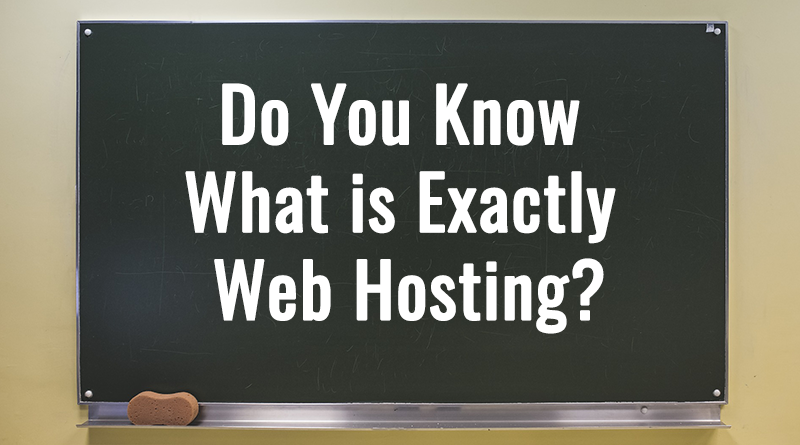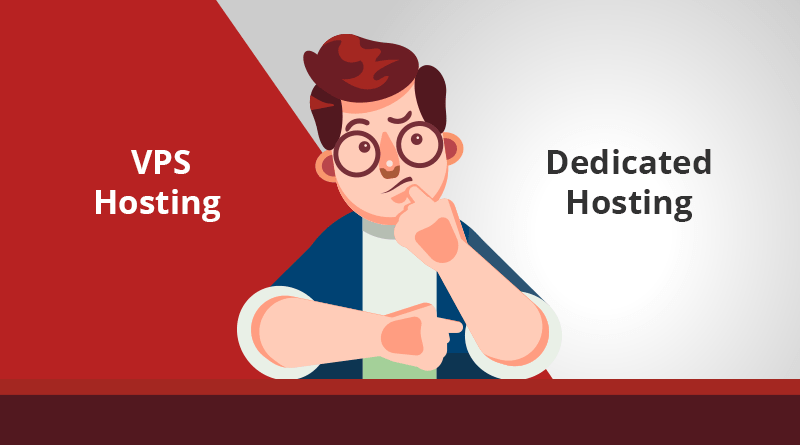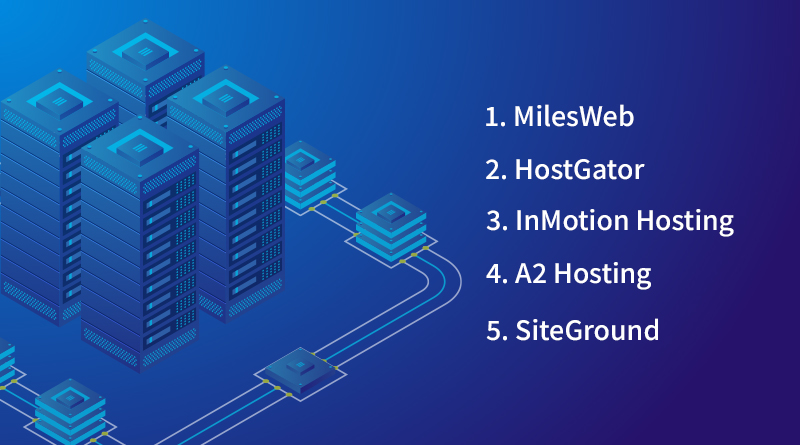To get your website online is a complex process and maximum work, functionality and final design depends on the type of web hosting you select as well as the technology used by the provider.
In technical terms, having a hosting provider to host your website isn’t important as even a computer can act as a web server. However, it is a complicated process to set up a server and there’s much you need to do. So, the businesses work with web hosting providers to get the best performance and high security possible.
If you check the web hosts at a glance, all of them seem to offer similar service with small variations in price. But if you keenly observe, there are key differences. They differ in terms of service, storage, features, stability, protection and scalability.
Each of these can have a significant impact on business. For instance:
• A 1-second delay in page load time leads to a 7% reduction in conversions.
• If a page takes 4-seconds to load it results in a loss of 10% or more of site traffic.
• At least one serious security vulnerability is observed in 86% of websites.
• If you decide to migrate to another host, you will need to spend thousands of dollars and might need weeks, even months of planning.
It is important to select the right web host to protect the scalability and revenue of your business. In this guide, you will learn everything about web hosting which will make you confident and help in choosing the web host for your next website.
What are Your Goals and Hosting Needs?
Prior to selecting a web host, identify your web hosting requirements and business goals in the next few months/years. It is better to consider the long-term goals as at the start you won’t get high traffic but after your website grows, it might force you to either migrate or spend on maintenance of server.
For finding your hosting needs and the type of servers, services, and site architecture you’ll require, check the following pointers:
• The website you are building will be primarily a source of company information or will require more interactive elements.
• The functionality your site will include – a customer database, and if there will be a transfer of private and secure information.
• The kind of traffic growth expected – if it will be a blog with steadily growing traffic over time, or an eCommerce site that might experience high traffic spikes.
• If you want to host multiple websites at multiple subdomains for your site.
• Are you planning to scale up and add new functionality as the business grows?
• Is the need for software integration right now or in the future, with 3rd party software (think accounting software, customer relationship management software, ERP, etc.)?
• Whether you expect any special coding needs for your site (php, java, .net, etc.)?
• Decide the kind of content that the website will provide. Will you need a significant amount of reliable bandwidth for an ever-growing audience?
• The number of pages your site will comprise of. Some providers might limit the number of pages permitted with hosting plans.
• Check if your site is critical to the success and growth of your business. If the downtime will impact your revenue.
• Do you require email hosting with your site?
Take your time to think on all these queries while noting your technical and growth requirements for the future.
This is what makes it far easier to find the features you require and the ideal hosting plans for your site.
Hosting Plans to Choose From
There are several types of hosting plans offered by different web hosting companies, depending on the technology or servers they operate and the infrastructure scale, often considering the audiences they intend to serve.
For example, there are some of the world’s largest web hosting companies that offer complex dedicated and private hosting plans for massive enterprises with expansive website needs.
Dedicated web hosting is beneficial as the servers aren’t shared with anyone and therefore, the activity and traffic to other sites doesn’t impact your website performance.
But with this type of hosting the cost of dedicated hosting and server rental quickly exceed the cost of hardware purchases, especially for larger enterprise sites that need more storage space or memory. Additionally, it also brings in significant upfront costs and you need to have good technical knowledge.
Shared web hosting is the most popular and common hosting plan selected by start-ups and small to mid-sized businesses.
Virtual Private Servers (VPS) is a scalable web hosting as compared to shared hosting. So, when your business finally starts outgrowing a shared hosting plan, you can switch to VPS hosting instead of changing your web hosting provider.
Reseller hosting is the best for those who want to start your own web hosting business.
Cloud hosting is the highly scalable web hosting that offers scalable resources with the pay per use feature.
How to Select the Right Web Hosting Company?
While selecting a hosting plan, you’ll need to review the functionality and features offered by a web host to ensure the features you want are available. Here are some of the most common functionalities you can expect with most hosting plans.
eCommerce Options
eCommerce is a critical feature when you plan on selling products. Good eCommerce integration should include the ability to manage multiple payment options, automatic taxes, shipping management options, and secure processing and encryption of customer data
Email Options
Email is the key element for any business especially that wants to grow a significant online presence. For reviewing the email options, check the number of email accounts or user accounts you can create, the cost per additional user, webmail access, email storage and archive storage, email aliases, and limitations on file attachments.
The Control Panel
Hosting providers use existing software platforms that allow customers to manage the various aspects and features of their hosting accounts from the back-end. These interfaces are designed to be user friendly and make it easy to adjust things such as FTP, email, databases and applications via a single user interface.
Two most commonly used control panels in web hosting are cPanel and Plesk. You can easily learn its interface even if you’re not tech savvy.
Supported Scripting Languages
Scripting languages are used for the functioning of websites as well as customizing them. There are different types of scripting languages and which language will support depends on the operating system or the server the company uses. For instance, a Windows-based hosting supports PHP, Python, SSI, ASP, Active PERL, Apache Tomcat, and so on.
While a Linux-based hosting support the same or similar languages, like PHP, but doesn’t support JAVA, ASP, or JSP or specific components related to Windows.
So, find the language your site will be built with and verify if the language is supported by your web host.
Website Builders
You need to build a website once your hosting account gets configured. Those who don’t have the knowledge of coding and scripting languages have just one option to build their website and that is hiring a web developer. For this you will need to spend hard.
Some hosting providers offer you tools such as website builders that make it easy to get your site online without the use of any coding language.
Website builders offer easy-to-use interface designed to function as a drag-and-drop environment. You just need to customize the template with your logo, images, and content to make it your own.
Scalability
Scalability is a major concern for a growing business. It is one of the key things you should consider when choosing a hosting provider. As your business graph slides upwards, there will be consistent and steady increase in website traffic, purchases, and queries on your website.
Additionally as time passes, you will need new features and functionality for maintaining the same level of service or to offer new services to your customers.
So, check if the web hosting company you select is capable of scaling with your business. Below are the things you should consider when comparing hosting plans and web hosting companies:
Variety in Hosting Plans
There will be several web hosting plans offered by the scalable web host right from packages with simple features to more expensive and advanced features and functionalities. At the start going with small plans and simple features is better. You can move on to advanced plans when your website needs start growing.
Data Storage
Low tier plans come with limitations on disk space while high tier plans increase the disk storage up to unlimited value.
At the start a storage limit of 50-100GB is enough for storing data of consumers as well as business websites.
Bandwidth
Bandwidth refers to the amount of data that can be transmitted in a fixed amount of time. Some hosting providers offer unlimited bandwidth even with the basic plans.
If a web host offers limited bandwidth, you will be able to understand the cost of exceeding limitations.
Host and Server Reliability
When you select a web host, speed and performance are the major features that you should look for. You won’t be able to check for the performance issues when you launch your website for the first time. The service reliability faults will come into spotlight as your business grows.
You might also face the issue of outages and network that might lead to website downtime.
When you are evaluating a web hosting company, check for its data centers, the equipment they use, and their uptime guarantees.
Security Features Offered by the Web Host
As per the data shared by Forbes, around 30,000 websites are hacked on a daily basis. Additionally, 84% of online shoppers won’t make a purchase if they find themselves connected via an insecure connection during online shopping.
Make sure you check for the security options when choosing a website host, so that your business info, as well as customer data, is fully protected.
A good web host offers daily backups, DDoS protection, security, redundancy, monitoring, data encryption, etc.
Customer Support
The web host’s customer support team should always be available to resolve your issues. They should have the technical knowledge about web hosting and should be capable of getting to the root of the issue.
So, make sure that the web host you select offers 24/7 support service and that their team is well experienced.
Additionally, check if they have a knowledge base section on their blog that contains articles based on server-related issues. Also, don’t miss to check the contact options such as email, live chat and phone.
Conclusion
It might be time-consuming to select a web host, but its better take the time to finalize your business goals and hosting needs. This will help you to select the most appropriate hosting plan to meet those goals and needs.
Remember the success of your website is partially depends on searching a dependable hosting provider. So, use this criteria list to find a reliable, affordable service with scalable hosting that will support you as your business grows.
Are you finding a new hosting provider? Share your experience in the comments below.




